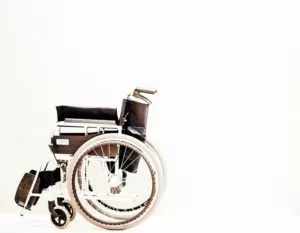California Medical Discrimination Laws

Suffering from a medical condition can take a toll on your life.
You may not be physically able to do everything you would like to do.
And treating your condition can bring both emotional and financial stress.
On top of all this, you should not have to worry about how your condition will affect your employment.
That’s why it is important to know that medical discrimination in the workplace is illegal under both California and federal law.
If you think you have experienced discrimination based on a medical condition, an attorney can explain your options.
What Medical Conditions Are Covered Under the Law?
The California Fair Employment and Housing Act (FEHA) prohibits employers from discriminating against current or potential employees based on physical disabilities, mental disabilities, or medical conditions.
Physical and mental disabilities are diseases or disorders that limit major life activities such as working or socializing.
Medical conditions, as defined by the FEHA, are:
- Health impairments related to cancer; or
- Genetic characteristics make it more likely that the carrier will develop a disease or disorder, even though the person does not presently have any symptoms.
An employer may request medical records to confirm that you have a disability or medical condition but only records directly related to the disability and any necessary accommodations.
What Constitutes Discrimination Based on a Medical Condition?
The FEHA bars a wide range of medical conditions discrimination in the workplace.
Examples of things an employer cannot do solely because you have a medical disability or condition include:
- Refuse to hire you for a job or training program;
- Fire you from a job or training program;
- Pay you less than others doing the same job or provide fewer benefits;
- Disclose your private medical information to others; and
- Retaliate against you for requesting accommodations or filing a complaint.
This law applies to most companies and labor unions with five or more employees but not to religious organizations or nonprofits. Harassment is prohibited in companies with even one employee.
There is an exception.
An employer can fire a disabled employee if the employee cannot perform the essential duties of the job or cannot do so without endangering the health and safety of themselves or others.
However, before letting the employee go, the employer has to offer the employee “reasonable accommodation.”
This means changes that would make it possible for the employee to do the job, such as making the restroom accessible, allowing a modified work schedule, reassigning the person to a vacant position, or providing assistive equipment.
But accommodations that impose an “undue hardship” on the employer are not required.
Do Any Other Laws Protect Against Medical Discrimination?
Yes. The Americans with Disabilities Act (ADA) is a federal law that provides similar protections.
The ADA applies to private employers with 15 or more employees, nonprofits, religious organizations, and state and local governments.
Can I Sue for Medical Discrimination?
If you believe your employer has discriminated against you based on your physical or mental disability, you should contact an employment discrimination attorney right away.
There are limits on how long you have to protect your rights.
You also cannot sue your employer in court until you either allow the California Department of Fair Employment and Housing (DFEH) to investigate your claim or obtain a right-to-sue notice from the DFEH.
Similarly, the Equal Employment Opportunity Commission must evaluate federal ADA complaints.
Do I Need an Employment Lawyer?
Ottinger Employment Lawyers can help you navigate the process of filing a complaint for medical discrimination.
For over twenty years, we have focused solely on helping employees resolve employment issues.
Contact us today for a consultation regarding your medical condition discrimination case.



